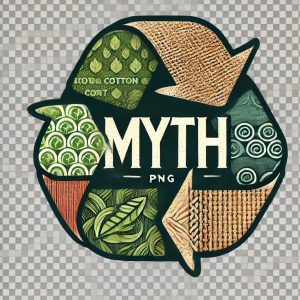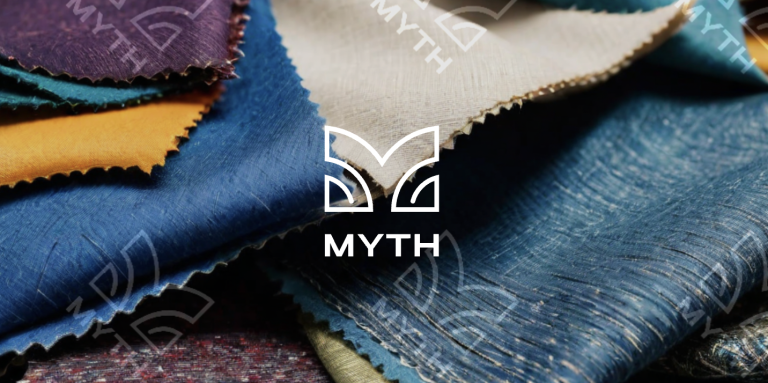Hello! Today, I want to talk to you about two major trends that are rising and shaping the future in the textile industry: artificial intelligence and sustainability. For years, the fashion world has had a significant environmental impact, but there are promising innovations aimed at changing this. In particular, AI technologies are transforming the game for both producers and consumers by enhancing sustainability. So, how do these two come together? Let’s explore it together.
1. Does AI Make Textile Production More Efficient?
First, let’s talk about the major advantages that AI brings to production processes. In the past, textile production was synonymous with large amounts of fabric waste and high energy consumption. But this picture is quickly changing thanks to artificial intelligence.

For instance, MYTH AI algorithms can optimize fabric cutting, significantly reducing the amount of waste by %65. Systems that detect errors early help prevent material waste, thus enhancing sustainability and reducing energy consumption. As a result, production processes protect the environment while also lowering costs.
2. How Does AI Support Sustainability in Supply Chain Management?
AI enhances processes at every stage of the supply chain. It’s crucial to predict when and how much of a product will be produced and to manage inventories accurately. AI-powered forecasting tools predict demand in advance, preventing unnecessary production. This leads to less material usage and energy savings. Additionally, AI solutions in logistics can optimize transportation routes, thereby reducing carbon emissions. All these processes contribute to sustainability goals.
3. How Is Sustainable MYTH AI Pattern Technology Transforming the Fashion World?
Sustainable fashion design is creating a revolution in the textile industry. AI-supported sustainable pattern technology, in particular, offers great advantages to manufacturers. If you want to create clothing with recycled materials, AI-based software allows you to test these products quickly and efficiently before moving into production. This makes it much easier to develop sustainable products and expands the boundaries of creativity. But how does this technology reduce fabric waste? AI can design patterns that minimize waste when cutting fabric, reducing costs and promoting eco-friendly solutions.
4. Circular Economy and AI: How Can Waste Be Reused?
The fashion world is focusing on recycling and reusing waste through a circular economy. Here, we see the power of artificial intelligence. AI-based image processing technologies enable the automatic classification and recycling of old clothes. For example, AI systems that separate different types of fabrics improve the quality of recycled materials, supporting the circular economy. This way, old clothes are brought back into use instead of being thrown away. These steps are crucial for both minimizing environmental harm and preventing resource waste.
5. Personalized Fashion and Customer Experience: A New Step in Sustainability?
Things are changing on the consumer side as well. AI increases sustainability by offering personalized product recommendations. Now, people can buy products that are specifically designed for them and truly meet their needs. This prevents overproduction and resource waste. Moreover, AI-powered virtual fitting rooms allow people to see how clothes look on them before purchasing. This reduces return rates, and as a result, there is less waste. This is a win-win situation for both consumers and the environment.
6. Is a Sustainable Future Possible with Technology?
In conclusion, when artificial intelligence and sustainability come together in the textile industry, great results can be achieved. The efficiency and innovation opportunities provided by AI bring significant environmental and economic benefits. I can confidently say that the fashion industry is moving toward a greener, more efficient, and more profitable future. This transformation makes it easier for both producers and consumers to make environmentally conscious choices, taking a big step forward for sustainability.
7. AI and Sustainable Pattern Design with MYTH AI: Is It Really Possible?
The textile world is rapidly changing, and sustainability has become not just a trend but a necessity. MYTH AI leads this transformation by prioritizing both creativity and eco-friendly solutions through the use of artificial intelligence. But how does this technology make a difference in the textile sector? How does MYTH AI accelerate creative processes, and what does this mean for sustainability? MYTH enables designers to quickly test pattern variations, saving time and reducing energy consumption, making the process more environmentally friendly. This significantly reduces fabric waste, providing a more sustainable production model.
Creating new textile patterns is often a time-consuming process that requires numerous iterations. MYTH AI accelerates this process, allowing designers to quickly experiment with different pattern variations. This not only saves time but also reduces energy consumption associated with long design processes, making the entire workflow more eco-friendly. Currently, MYTH offers up to 90% efficiency in all design processes. What does this mean? It means you gain more time to create the best design possible within a fast-working framework.
MYTH AI proves that technology and sustainability can indeed go hand in hand. By using AI to optimize design processes, recommend eco-friendly materials, and promote circular practices, MYTH AI is setting a new standard in the textile industry. With innovations like these, fashion in the future can be both stylish and environmentally friendly. Now, let’s see how MYTH AI designs this efficiency for us!
Sustainable Design with MYTH AI
When you first log in to MYTH AI, you’ll find an array of inspirational patterns that are updated every two weeks. You can view them in a spiral or gallery format. Simply click on any pattern you like, and you can begin to refine and develop it.
Design Paths with MYTH AI
-
- Create: Choose a pattern and let MYTH’s creativity take over. It will provide you with four alternative designs.
-
- Generate Similar: Upload a pattern and set the similarity level to generate designs that closely resemble, or deviate slightly, from your original choice.
-
- Multi-Image to Design: If you believe combining two different patterns could yield a better design, upload both, and MYTH will allow you to set which one should be more prominent.
-
- Image and Text to Design: Modify existing designs by describing the changes you want to make. No need to add new images—just type in your instructions.
-
- Text to Design: For those who can describe their vision in words, this is a fantastic tool. Simply detail your ideas, and MYTH will transform them into visual designs. The more detailed your description, the better the results.
-
- Style Transfer: Perhaps you love a design’s motif but wish it had a different style. MYTH can analyze your chosen style and apply it to any design without altering its core features.
With MYTH AI ‘s range of design tools, you can make final adjustments like recoloring, vectorizing, enhancing resolution, or cropping your designs. And during every design phase, you can choose the pattern report format you prefer.
By creating in seconds, cutting design and production costs, and accelerating the design process, MYTH has positioned itself as a brand that can lead the world in sustainability.
Did this blog give you an insight into how MYTH AI is driving sustainability in the textile industry? I’d love to hear your thoughts!
Yazan: Zeynep Ceren Karagüzel

